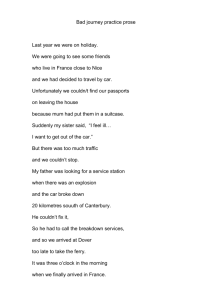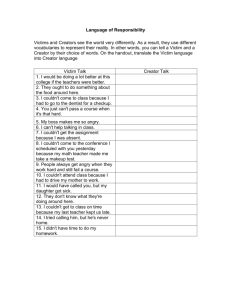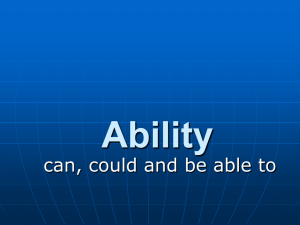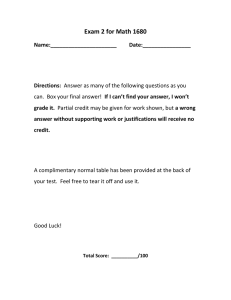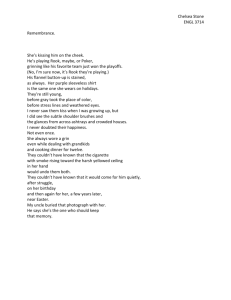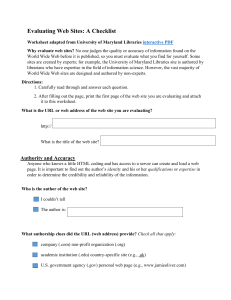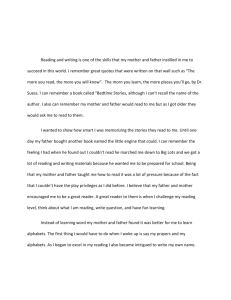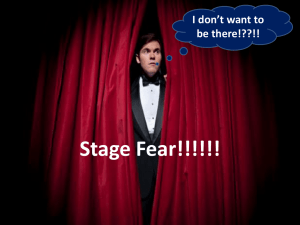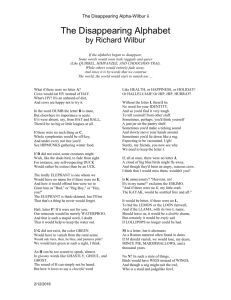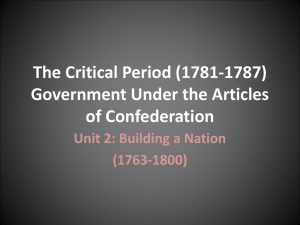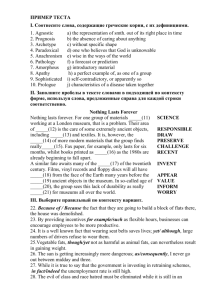possibility_certainty - Alma Blasco Blanquer
advertisement
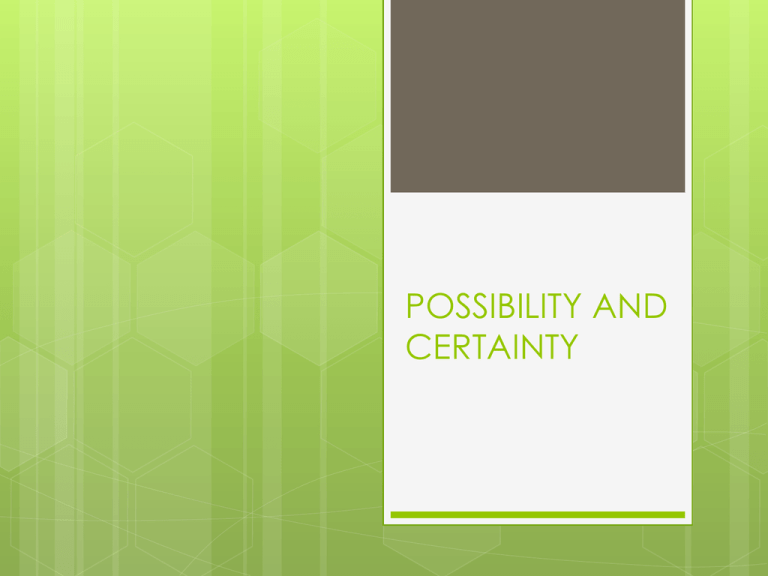
POSSIBILITY AND CERTAINTY MAY, MIGHT AND COULD We use may or might to say that something is possible or that it is quite likely. We can use them for the present or the future. It may/might be a bomb. (= Perhaps it is a bomb.) / may/might go to the disco tomorrow. (= Perhaps I will go to the disco.) MAY, MIGHT AND COULD We can use could to say that something is possible. The story could be true, I suppose. (= Possibly it is true.) You could win a million pounds! (= Possibly you will win a million pounds.) Sometimes could means only a small possibility. It is possible (but not likely) that you will win a million pounds. In some situations we can use may, might or could. It may/might/could rain later. MAY, MIGHT AND COULD After may, might or could we can use a continuous form (be + an ing-form). That man may/might be watching us. (= Perhaps he is watching us.) Sarah may/might be working late tonight. (= Perhaps she will be working late.) I'm not sure where Matthew is. He could be playing squash. (= Possibly he is playing squash.) MAY, MIGHT AND COULD IN THE NEGATIVE The negative forms are may not, might not/mightn't, and could not/couldn't. MAY NOT AND MIGHT NOT - Something negative is possible. Daniel may not get the job. Tom might not be in. I mightn't finish the marathon tomorrow. (It is possible that I will not finish it.) COULDN’T - Something is impossible. Vicky is afraid of heights. She couldn't climb onto the roof. I'm completely unfit. I couldn't run a marathon. (It is impossible for me to run it.) MUST AND CAN’T MUST - We use must when we realize that something is certainly true. She isn't answering the phone. She must be out. I had my keys a moment ago. They must be here somewhere. Andrew isn't here. He must be working in the library. MUST AND CAN’T CAN’T - We use can’t when we realize that something is certainly not true. He can’t be her father, he’s too young. She can’t be working. The shop closed a couple of hours ago. MUST HAVE / CAN’T HAVE These are used to make logical deductions about past actions. I must have left my wallet in the car. (I am sure I did) Jim can't have noticed you. (I am sure he didn't) May have, might have and could have These express possibility or uncertainty about past actions. Jean might have missed the train. (perhaps she did) He may not have received the letter. (perhaps he didn't) You could have been killed! (it was a possibility) Was/Were to have This describes something which was supposed to happen, but didn't. It is formal in use. He was to have left yesterday. (he was supposed to leave, but he didn't)
